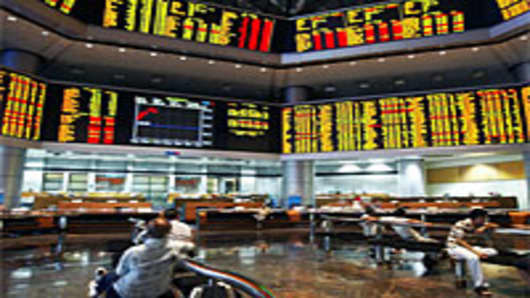The Malaysian economy’s low correlation to the rest of the world will help the country’s equities perform better in times of economic uncertainty and market volatility, says one analyst.
Mark Matthews, Head of Research Asia at Bank Julius Baer, tells CNBC that Malaysia has been Asia's "contrarian" stock market for the past 13 years, and should end the year higher.
“As soon as I say the word Malaysia I always get all kinds of scowling faces and that's exactly why it's not correlated, because people still have not quite forgiven them for the capital controls and all the anti-capitalist vitriol 13 years ago,” says Matthews.
Past government measures to limit the flow of foreign capital have made foreign fund managers “very underweight” on Malaysia, which means its stock market will avoid massive sell-offs during downturns, according to Matthews.
He also sees upside in the Malaysian Ringgit , and the economy should benefit from the current strength in commodity prices.
"It's very wealthy in soft commodities and soft commodities are at very high prices so that's a good thing," says Matthews. "I think its currency will follow the Renminbi, that seems to be the unstated policy of Bank Negara and we're looking for about 4 percent appreciation in the Renminbi over the next 12 months."
Matthew believes China’s increasing wages will boost Malaysia’s manufacturing sector, as firms look elsewhere for cheaper factory space.
“Countries like Malaysia, Mexico were the biggest losers of when China burst into the world scene in manufacturing in the 90s,” Matthews says. “As the Chinese wages have risen so much in the past 12, 24 months — for the first time in 15 years you're seeing countries like Malaysia and Mexico now competitive again.”
Matthews advises that the investing theme in Asia this year is “small over big.”
“Here's another thing I like about Southeast Asia, is that they live through the Asian crisis, India and China did not,” he says.
“Southeast Asia learned the hard way what happens when you take excessive risk and they went through many painful years so now the balance sheets are all very strong.”


